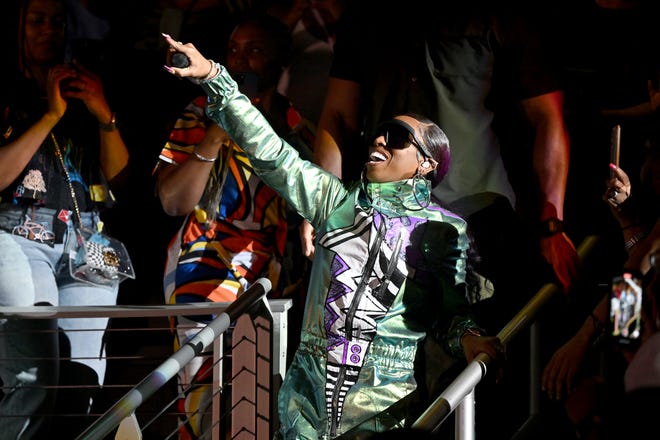Hip hop is everywhere.
Since its inception in the Bronx in 1973, the phenomenon has permeated society. Hip-hop is active in radio, television, fashion, and sports. This year, the movement is celebrating a special birthday. Hip-hop celebrates its 50th anniversary with musical hits by great artists like Lauryn Hill, Kendrick Lamar, Run DMC, Missy Elliott, as well as iconic dance, fashion, movies, and so much more.
Hip-hop, like many great movements, is a widely recognized culture, but it’s not easy to define.
So, as we look back at the culture that is changing society, USA TODAY takes a closer look at what hip-hop is and why it matters.

What is hip hop?
Hip-hop is more than hit music by great artists like Drake, Nicki Minaj, Cardi B, Snoop Dogg, Kanye, Doja Cat, Jay-Z, and many more.
Bassline, hip-hop is a cultural movement that incorporates fundamental elements of rap, DJing, dance, especially breakdancing, and graffiti. Visual art, sonic art, physical art, AD Carson, assistant professor of hip-hop, Global South and performance artists at the University of Virginia, told USA TODAY.
“It’s not just these products, but the way certain products are made and the way cultural forms are made. So it’s a kind of cultural force,” Carson said. “So it’s not just what it produces, but also how it produces those things.”
According to Carson, its staying power comes from hip-hop’s built-in resilience. “I think it’s kind of a… exploitative relationship between America and black culture.”
Who and how did you get started in hip-hop?
August marks the 50th anniversary of hip-hop. Legend Recording, organizers of numerous events commemorating this milestone, summed up the birth of hip-hop at a party in 1973: “It’s a merry-go-round that goes back and forth from one record to the next, looping the percussion sections of each track to keep the beat alive,” the anniversary website says. “And within a community of dancers, artists, musicians, and poets…hip-hop was born.”
The Kennedy Center also credits DJ Kool Herc’s “flip the switch” moment as the true catalyst for the hip-hop movement.
“The effect of that night was shocking, and soon other DJs in the Bronx were trying to surpass Herc,” the Kennedy Center says on its website. “It’s been a code that has flowed through hip-hop ever since: 1) Use your skills and whatever resources are available to create something new and cool. 2) Emulate and imitate the genius of others. However, injecting personal style until the freshness shines through remains a major motivator in the hip-hop world.
The use of markers is what Carson calls “an investment in the story to see everything happening in different places under the same umbrella.”
What is the difference between hip hop and rap?
Hip-hop is sometimes accepted as a synonym for rap. But the reality is subtle, Carson says, and offers a metaphor. “Imagine there’s a multi-car garage, and his one of the cars in the garage will have rap, and the garage itself will be hip-hop.”
Why is it called “hip hop”?
It’s unclear how a wave of art, music, fashion, etc. came to be called “hip-hop.” Carson said there are many people trying to figure out where the term came from.
“A lot of people argue that this is the first word of the song ‘Rapper’s Delight,’ and the first word is ‘hip-hop,'” Carson said, referring to the Sugarhill Gang’s 1979 song. talk.
Some say “hip” is intelligence and “hop” is movement, so hip-hop is “intellectual movement,” Carson says.
Naming is an effect of the media environment and capitalism, he says, and believes that if you name something that was working on its own terms, the name will stick.
A fan threw a drink at Cardi B.She’s not the only singer to have been punched on stage.


